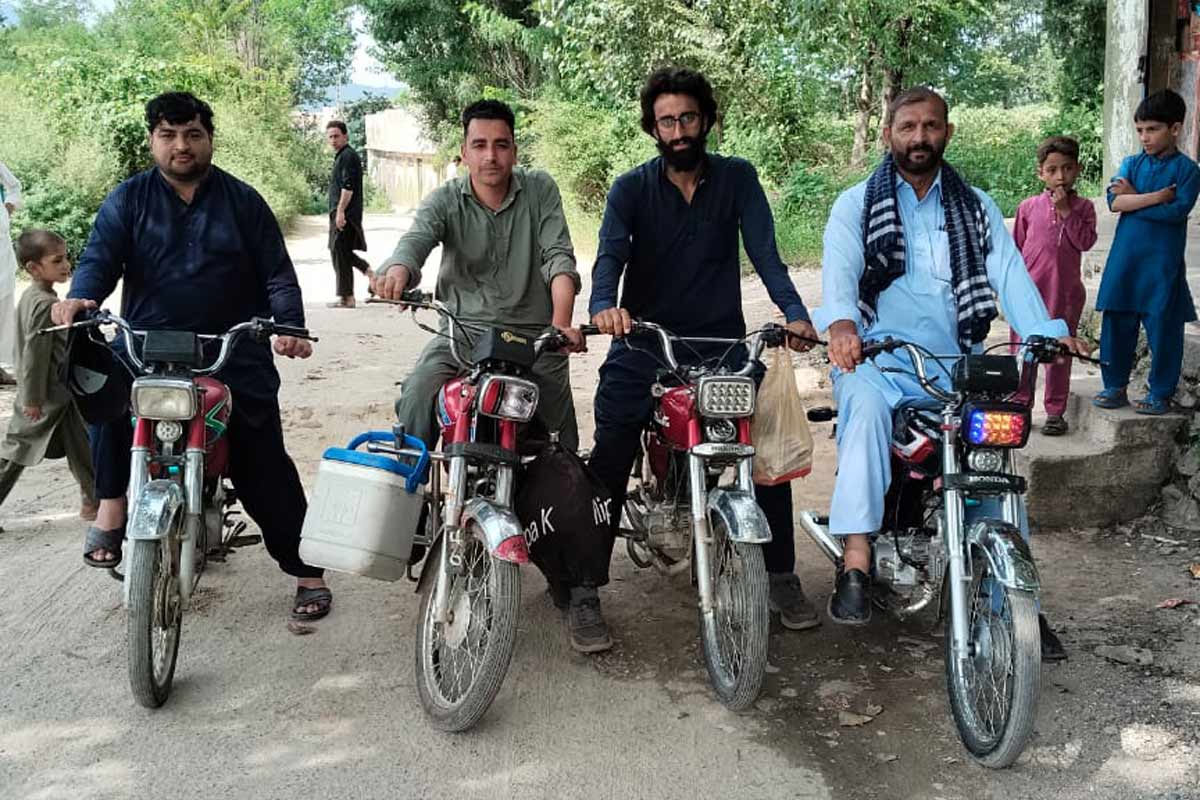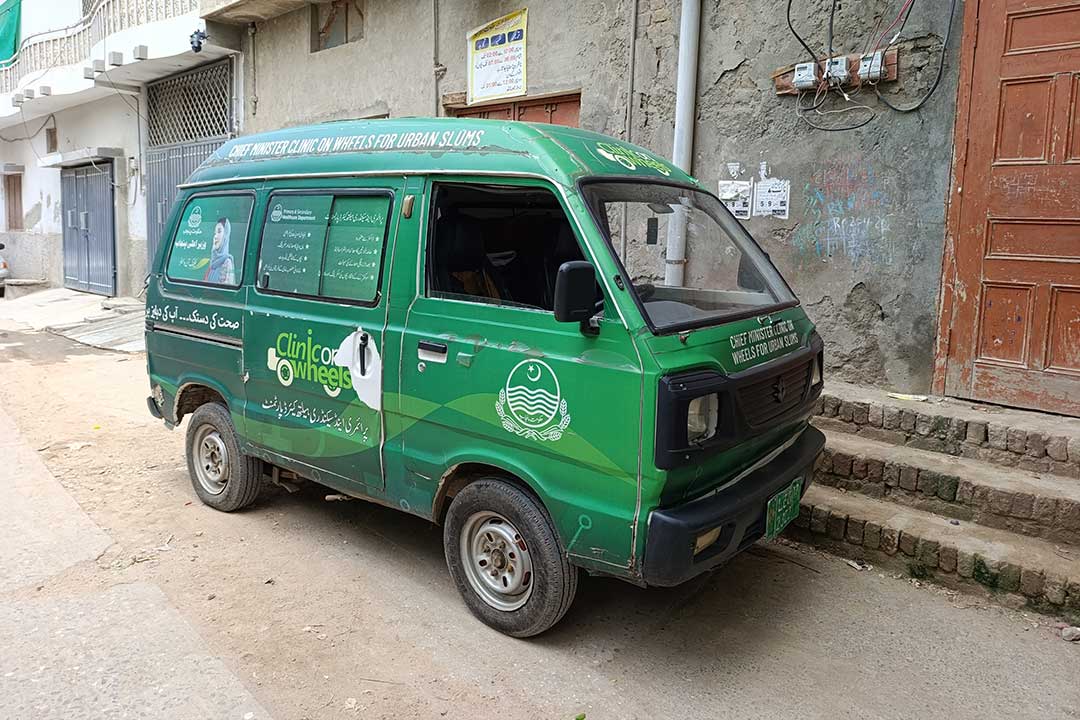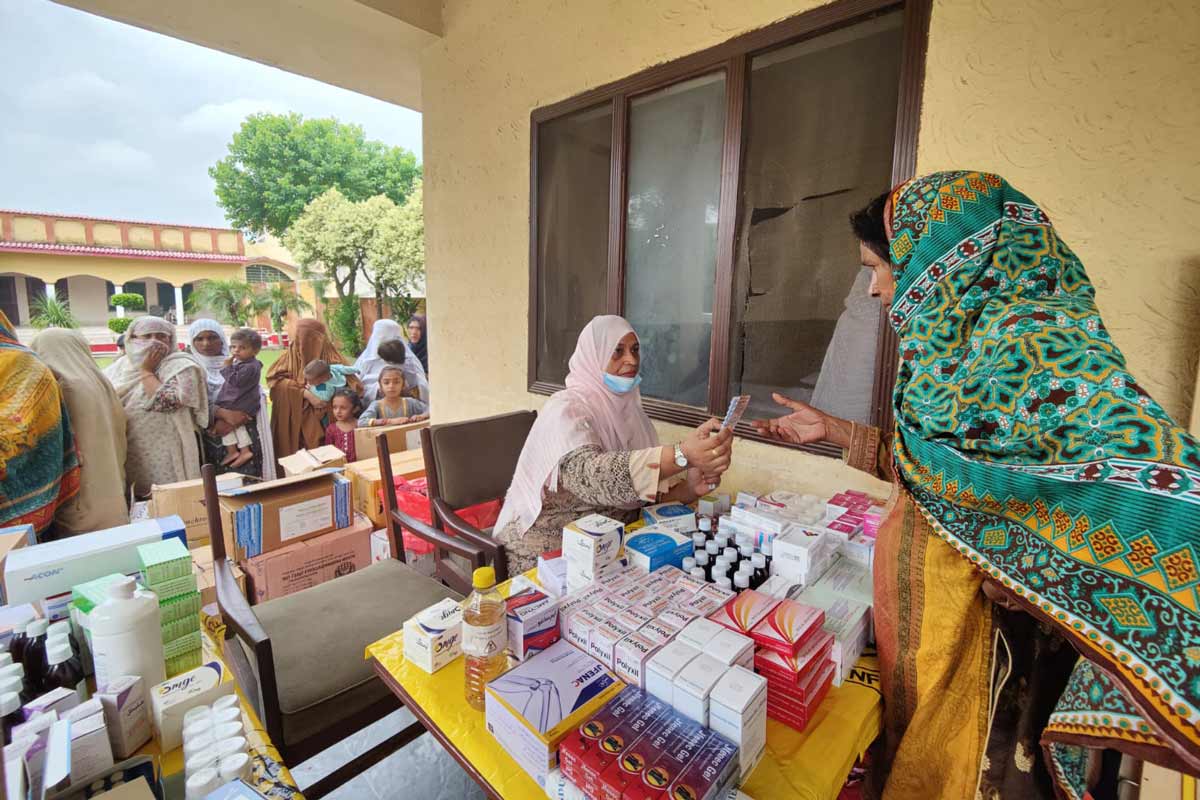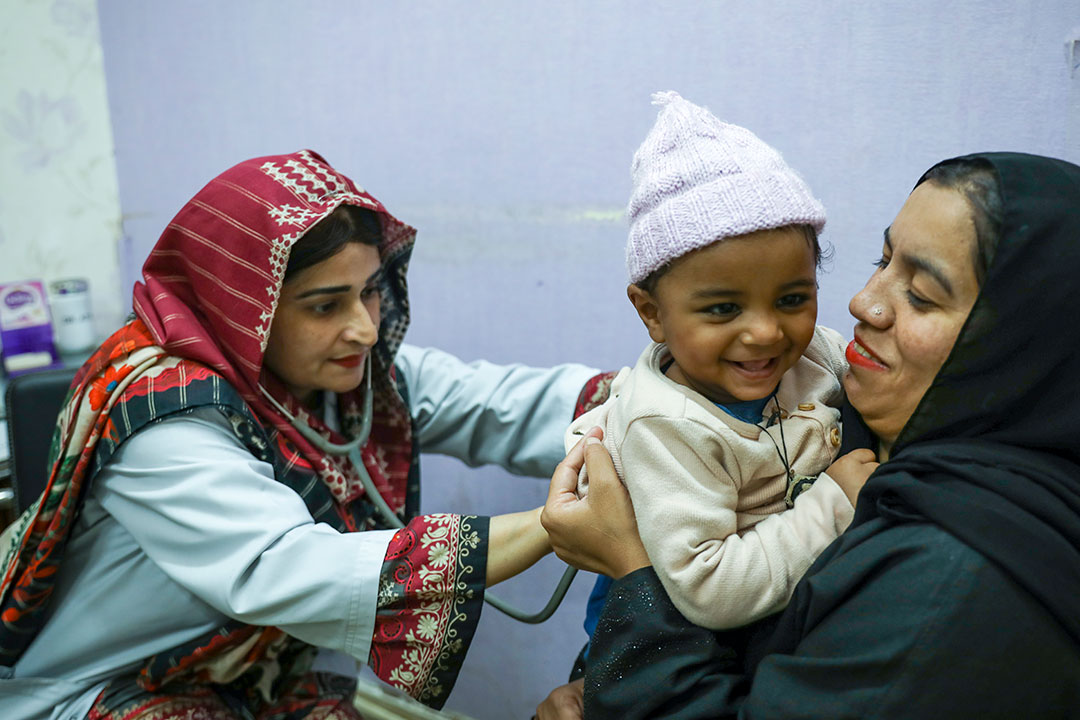Living proof: in Pakistan, a polio-disabled vaccinator inspires his community
Muhammad Kamran lives with the lasting effects of a preventable infection. He’s doing what he can to make sure others won’t have to.
- 7 December 2023
- 5 min read
- by Rahul Basharat Rajput

Muhammad Kamran was one year old when he contracted poliomyelitis. As the years passed, he noticed that he lacked the ability to run and play like his peers, and that his mother faced particular difficulties in providing for him – both realisations that he recalls as emotionally painful.
But Kamran can be counted among those courageous people who can turn their weaknesses into strengths.
"I have made a mission in my life that whenever nature gives me an opportunity, I will do whatever I can to reach every child and play a role in keeping them safe from all diseases including polio."
– Muhammad Kamran, vaccinator, Department of Health, Multan District
Now 45 years old, Kamran is employed as a vaccinator with the Department of Health of Multan District, in Pakistan's Punjab province. His job, in other words, is to protect children from polio and other diseases included in the country's Expanded Program of Immunization (EPI).
Life's mission
"I have made a mission in my life that whenever nature gives me an opportunity, I will do whatever I can to reach every child and play a role in keeping them safe from all diseases including polio," says Kamran.
Kamran remembers crying in frustration because he was unable to join in with his able-bodied peers. "But now when I administer polio drops or vaccinate other children, I feel a sense of happiness," he says.
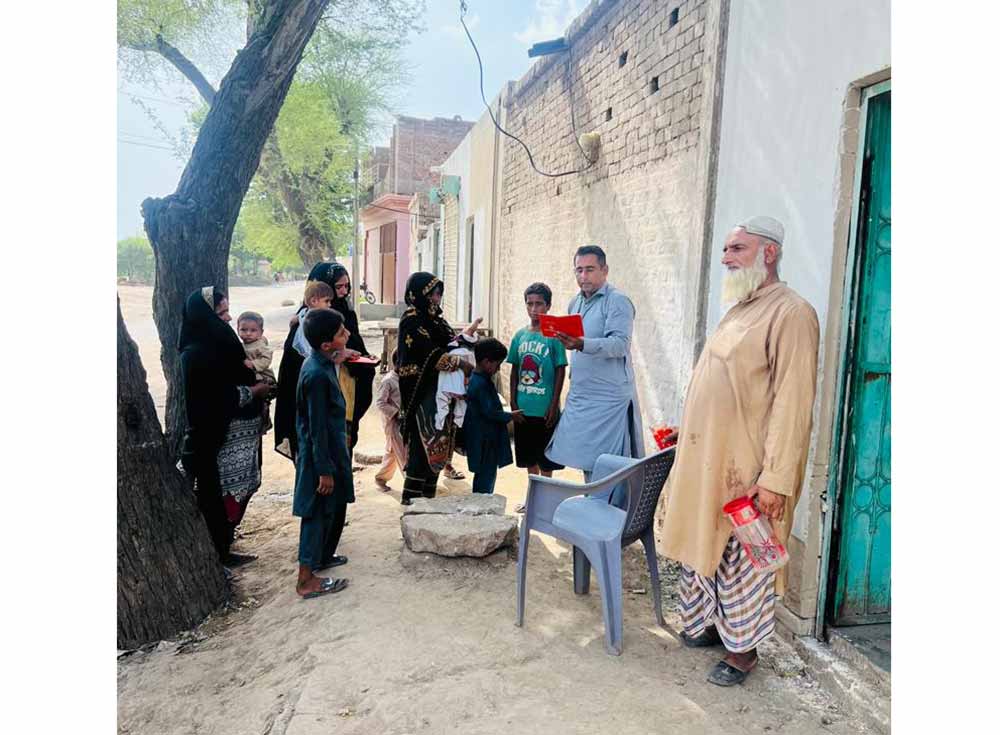
Credit: Expanded Program on Immunization, Punjab.
His own example can be a powerful motivator for parents who are unconvinced of the benefits of the vaccine, he says. "I ask them, for God's sake protect your children from these diseases by immunising them," Kamran recounts.
The number of children eligible for vaccination in the Union Council of Qasim Bela, Multan, the city where Kamran is a vaccinator, is around 47,000. Not a single case of polio has been reported from his Union Council since 2005, when he joined the vaccinator corps.
Pakistan, one of just two countries left in the world where wild polio remains endemic, has been facing the challenge of parents' rejection of polio vaccination in some zones, and a lack of cooperation from certain ultra-conservative religious groups. According to the Pakistan Polio Eradication Program (PPEP) six wild polio cases have been confirmed in the country in 2023 so far, all of those originating in Khyber Pakhtunkhwa and Sindh provinces.
Ninety-nine percent safe
But on his own patch, Kamran says he has mastered the challenges of vaccine hesitancy. According to Kamran, the vaccination rate in Qasim Bela is 99%.
He says during vaccination campaigns, he goes to mosques in his area and announces on the loudspeakers calling parents to bring their children for vaccination.
"I get 99% support from mosques and religious leaders during campaigns," Kamran said.
Kamran says the second important thing is to communicate in the local language to convince the communities. That said, he adds, it is also a fact that with time, parents have become more aware of immunisations.
Punjab pulls ahead
Aqeel Sarfraz, a Social and Behavior Change Consultant with UNICEF-EPI Punjab, said that Punjab is ahead of the rest of the country in terms of Fully Immunised Child (FIC) coverage, which stands at around 90%, adding that vaccinators like Muhammad Kamran are major assets in that success.
Have you read?
Director of Health Services Punjab EPI, Dr Mukhtar Ahmed Awan says the programme is adopting every policy that benefits the people and increases immunisation coverage. He says there are 5,000 health care workers who are working at outreach sites in Punjab province. More than 70,000 children are being immunised daily.
"Such high-scale coverage is impossible with courageous health care workers who work in tough conditions and in tough terrains too," said Dr Mukhtar.
Spokesperson for the Ministry of National Health Services Regulations and Coordination Sajid Hussain Shah told VaccinesWork that the government is working together with its partners to make sure all necessary measures are being taken to eradicate the crippling virus.
He says the government conducts high-quality polio campaigns in high-risk areas where the virus exists. Scholars, civil society and media are all part of the broad coalition of the eradication effort. But the key role, he added, is played by the programme's health workers, especially those who reach communities in security risk areas and hard-to-reach places.
"Such high-scale coverage is impossible with courageous health care workers who work in tough conditions and in tough terrains too."
– Dr Mukhtar Ahmed, Director of Health Services Punjab EPI
"These vaccinators are real heroes on the ground," he remarks. "Many vaccinators including women lost their lives in the line of duty to administer polio drops."
Changing minds
Nazir Khan of Qasim Bela did not believe in giving polio drops to children until three years ago. The reasons for his doubts, he says, were firstly, that his children used to run a fever after taking polio drops and secondly, that he had heard a rumour that the vaccine could cause impotency.
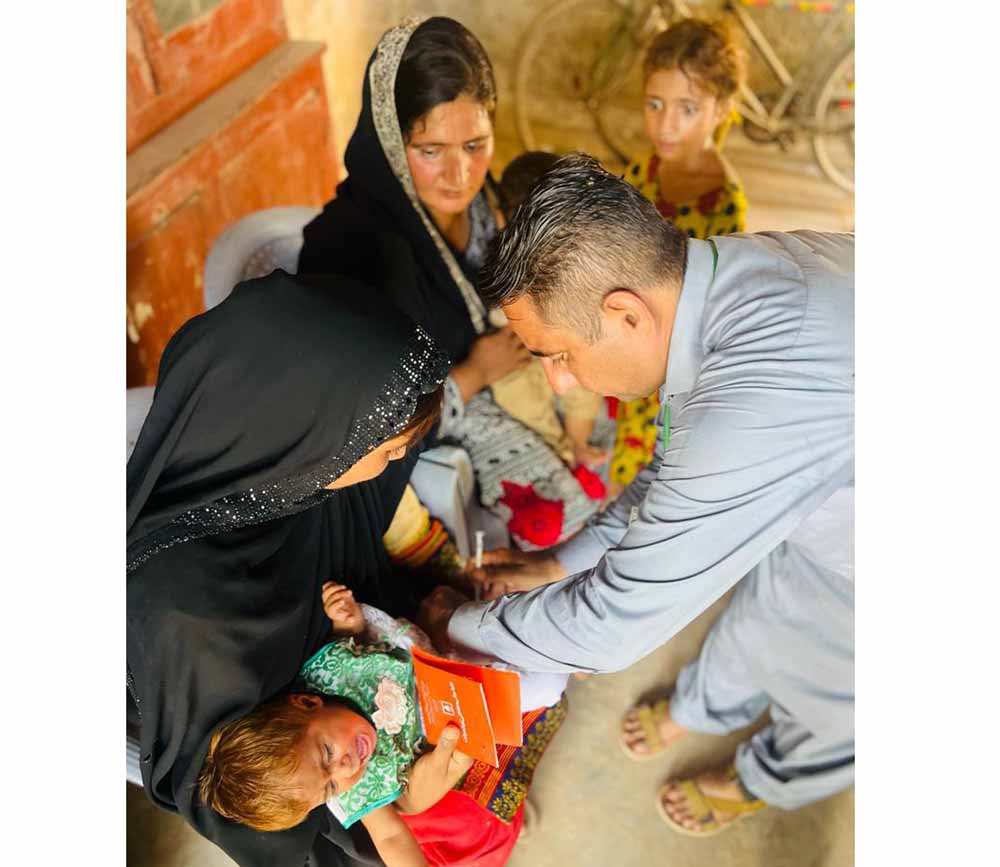
Credit: Expanded Program on Immunization, Punjab.
"But Kamran gave us his example to explain that if we avoid immunisation, and especially polio drops, our children's future will be unsafe," Khan says. Now he regularly administers polio drops to his children who are less than five years old.
Kamran says he also gets full support from his department, which he says takes every step to make communities safe from the diseases that are vaccine-preventable under the EPI.
"My only message to parents is to administer their children two polio drops so that no other child has to face the difficulties I faced in life," says Kamran.
